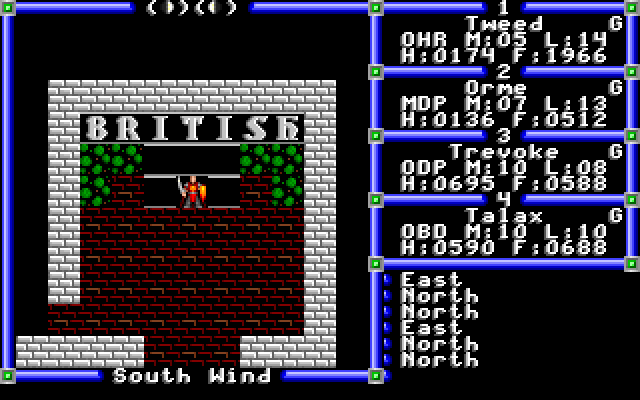

#Ultima iii gamefaqs series
Starting with Ultima IV, the series used a more complex text system, where the player would type in keywords in order to get information, starting with the ubiquitous 'name' and 'job' as introductions. While Ultima III required some basic conversations, they tended to become a single button press and reading a line or two of dialogue. More impressive than the overarching plot was Ultima's commitment to smaller-scale conversation and character-building. And the series' stories culminated in the two parts of Ultima VII, which were stunningly well-developed for the time and included one of the most shocking plot twists in gaming history. U5 took the virtues of its immediate predecessor and attached their exploration to a story with a villain. Ultima III was one of the first non-adventure games to have any kind of in-game story development and, for the first time, conversations with various non-player characters in towns became an important, necessary way to understand the game. Narrative: In addition to being the driving force behind open-world gaming, Ultima was also at the forefront of plotting in video games, at a time when RPGs, as a genre, was pushing gaming forward. It's not entirely alone, either, as Ultima VI had a storyline about bringing two warring races together via diplomacy, not combat. It's considered a unique game, and one of the greatest in gaming history. Valor meant not fleeing from combat, but had to be balanced with Justice, where you didn't kill enemies who weren't evil.
#Ultima iii gamefaqs code
How did you do this? You solved quests and explored dungeons, sure, but more than that you had to adhere to the moral code of the eight virtues. That term became the default for a player character within a video game. Ultima IV had no villain, and the world of Britannia was in a moral crisis, and only savable by embodying the world's n ew eight virtues and becoming the Avatar. Saving the world entailed defeating the villain, no matter how that was done – stealing, murder, what-have-you. The character you played in the first three Ultimas was known as the Stranger, for visiting this fantasy world in order to save it. And in many ways, it ended with Ultima IV, a game about morality more so than virtually any other. But game morality didn't start with Fallout. Morality: Modern games with morality systems tend to operate with a strict good/evil dichotomy, as they have since Fallout. Grab a cannon and start slaughtering guards so you can steal everything in the town? Well, you could do that, but there were consequences. Want to explore dungeons that are totally irrelevant to the plot? That was an option. Want to quit adventuring for a while and bake bread? You could do that. The deeper into the series you go, the more complex the world.

It was a seamless, consistent world, that felt lived-in, and that open-world games from Grand Theft Auto to Skyrim owe a huge debt to. Your party walked into a town in the same way that it walks through a dungeon.

In Ultima VI, perspective was consistent. Previous games in the series had switched perspective based on your context – dungeons were first-person, combat was top-down, and exploration on the world map had a completely different scale than exploration of towns. Ultima VI (1990) may be the most important open-world game of all time. What's more, the developments of open-world gameplay throughout the course of the series presaged the open-world games to come. The world was rarely "gated", letting exploration proceed in a non-linear fashion. You traveled across swamps, oceans, and hills, discovering what the world had to offer. Open-world gaming: From the beginning, the Ultima games took place in worlds which were as big as possible given the tech constraints. Even something as simple as three-dimensional graphics – either in perspective or overall representation – have ties to Ultima. If you're playing a game with a morality system, Ultima. If you're playing a massively-multiplayer game, you're dealing with Ultima. If you're playing an open-world game, you're dealing with Ultima. You don't know you're playing Ultima, but you are. Whatcha playing? No, actually, don't tell me.


 0 kommentar(er)
0 kommentar(er)
